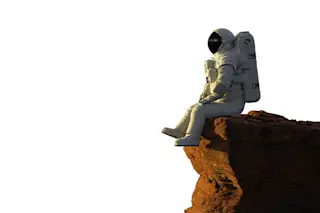If you thought the COVID-19 lockdowns were rough, think of this: Astronauts on the Mars mission will be confined to a spaceship with three to five other people for more than two years. And they will be, at peak distance, 140 million miles from anything they’ve ever known. Even the most extreme introvert and most daring adventurer might find that disconcerting. But NASA is on it.
The Human Factors and Behavioral Performance (HFBP) team, a part of NASA’s Human Research Program (HRP), works to understand and reduce the negative effects of long space missions, including finding ways to help astronauts cope with isolation. This is especially important as NASA plans longer missions, including a crewed mission to Mars. For the Mars trip, astronauts will be in space for two-and-a-half years. Contrast that with missions on the International Space Center (ISS) that, while they vary, usually last around six months.
Alexandra ...





